

Lawsuits alleging wage and hour violations are on the rise, but a case currently before the Supreme Court could tilt the balance of power toward employers in wage theft cases.
The Supreme Court heard oral arguments in Symczyk v. Genesis Healthcare Corp. on Monday; the American Prospect summarizes the details of the case:
The case involves a lawsuit filed by Laura Symczyk, who alleged that Genesis Healthcare had committed wage theft against her and her co-workers. According to Symczyk, Genesis routinely docked the pay of workers (including herself) for lunch breaks that were not taken. Reflecting the strength of her claim, Genesis offered her $7,500 plus associated fees to settle. Symczyk, however, rejected the offer, believing that she was suing not just for herself but for her co-workers. She wanted time for her lawyers to determine if her case could be brought as a class-action suit,
» Read more about: Supreme Court Could Block Worker Class-Action Suits »


When their incompetence kills good union jobs.
By now, we’ve all seen the outrageous headlines about Hostess executives getting $1.8 million in bonuses to liquidate their junk food company and eliminate 18,000 good jobs at bakeries and other facilities all across the country.
The company’s well-paid executives claim that union workers killed the company. Corporate propagandists echo this line, declaring that “Unions Killed the Goose That Made Hostess Brands Gold.”
Business experts know better. As an analyst at Forbes reported, Hostess executives killed the company because they “failed to reinvent its junk food product line and make it more enticing to health conscious palates.” To make a bad situation worse they let private equity firms “load up the company with debt” that enriched hedge fund investors without helping the company.
» Read more about: The Hostess with the Mostest … For the One Percent »
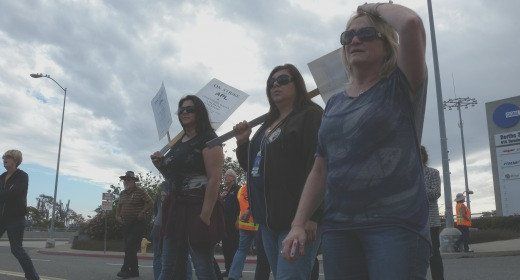

The nine-day strike by International Longshore and Warehouse Union clerks at the ports of Los Angeles and Long Beach has tentatively ended with a new contract with the Harbor Employers Association. If approved by the union’s membership, the pact will expire in 2016.
It was tempting to joke that the strike was a case of deja vu all over again – if the stakes weren’t so high for the port clerks’ Local 63. The sticking point was the outsourcing of jobs offsite, an issue that many thought was resolved with the local’s 2007 contract with port employers. Technology has made such job migration possible – and desirable — for shipping companies and terminal operators. Since the ILWU’s historic pivot in 1960 toward accepting labor-saving mechanization in exchange for greater member benefits and job security, the union has shown a consistent ability to accept and adapt to technology – even while that acceptance has reduced its membership.
» Read more about: Longshore Clerks Tentatively Agree to New Contract »

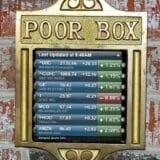
Few things have been a bigger buzz kill to the holiday season than the New York Times‘ epic investigative series questioning state and city government subsidies to big business. If you thought super-rich individuals were getting away with not paying their fair share (or any share) of taxes, the Times now lifts the veil from a system of corporate blackmail wherein companies are basically being given the tax dollars we pay to government. In exchange, these companies promise to do – nothing.
In the case of heavy industry, “nothing” means a manufacturing company will tell a locality that it may have to move its decades-old plant to another state or country unless it gets a whole lot of tax breaks, free sewage improvements and road repairs. In the case of Oliver Stone’s movie company and its plans to shoot a New York-specific story,
» Read more about: Business Tax Subsidies: The Grift That Keeps on Giving »
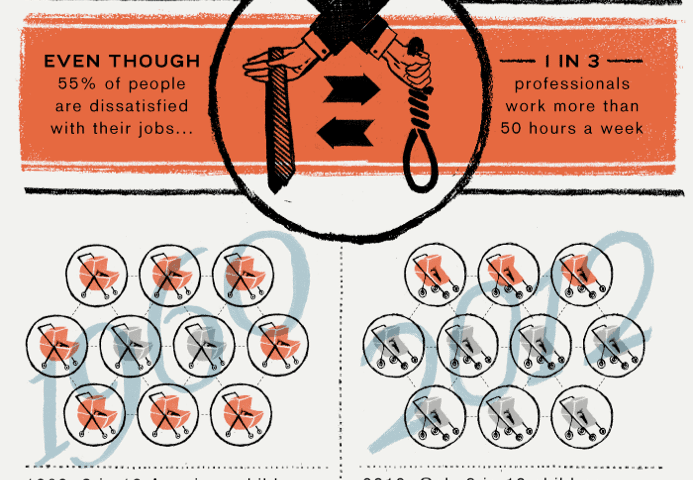
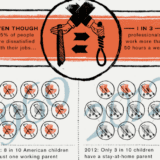


On Robert Reich’s website the economist and U.C. Berkeley public policy prof has eight simple principles for Congressional progressives to follow as they tangle with conservatives over that contentious piece of topography called the Fiscal Cliff:
» Read more about: Robert Reich's Advice to Fiscal Cliff Dwellers »


Bangladesh is half a world away from Bentonville, the Arkansas city where Walmart is headquartered. This week, Walmart surely wishes it were farther away than that.
Over the weekend, a horrific fire swept through a Bangladesh clothing factory, killing more than 100 workers, many of whose bodies were burnt so badly that they could not be identified. In its gruesome particulars — locked doors, no emergency exits, workers leaping to their deaths — the blaze seems a ghastly centennial reenactment of the Triangle Shirtwaist fire of 1911, when 146 workers similarly jumped to their deaths or were incinerated after they found the exit doors were locked.
The signal difference between the two fires is location. The Triangle building was located directly off New York’s Washington Square. Thousands watched the appalling spectacle of young workers leaping to the sidewalks 10 stories down;
» Read more about: Walmart and Costco: Worlds of Difference »


In the next decade, America will be transformed by a new wave of progressive activism, led primarily by organizers, thinkers, and politicians born after 1960. It is already bubbling below the surface, in workplaces, neighborhoods, churches, college campuses, think tanks, and foundation offices. Many of these young progressives have already waged successful campaigns to win public office, change public policy, and inject new ideas into our political culture.
There is no simple formula for successful social movements, but they all share a few characteristics. First, they embrace an “inside/outside” strategy, mobilizing people to protest, boycott, lobby, and vote, while simultaneously working closely with allies in government. Second, they don’t expect to bring about change overnight. They are long-distance runners, not sprinters. They try to win stepping-stone victories that lay the groundwork for further reforms. Third, while they work on separate issues, they recognize that they are part of a broader movement that requires building coalitions and developing trust.
» Read more about: Young & Restless: 50 Activists Who Are Changing America »


With the rejection of Mitt Romney’s economic vision, wherein the invisible hand of the free market guides us to prosperity (at least those not in the lazy 47 percent), progressives are now on the spot to offer up a compelling alternative.
Using animation and the vocal talents of Ed Asner, the Los Angeles Alliance for a New Economy (LAANE) jumps into the ring with the short video “It’s in Our Hands.” This is no ten-point plan, but instead a conceptual piece whose primary assertion is that we start to take the idea of democracy much more seriously when it comes to the economic order of things.
What if we could shape the U.S. economy to reflect the values and interests of most Americans? LAANE, which has had some success in doing just that, maintains that we can — and must.
» Read more about: Building a New Economy Video With Ed Asner »


While he was alive, the baseball establishment five times rejected Marvin Miller, who freed players from indentured servitude, from its Hall of Fame. The Major League Baseball Players Association, which Miller headed from 1966 to 1983, sat on its hands, failing to raise a stink about this outrageous miscarriage of justice.
Miller, who died on Tuesday at 95, was never bitter about his exclusion from the Cooperstown shrine. As a staunch unionist, he knew which side he was on and understood that the baseball owners and executives who control the Hall of Fame would rig the rules to keep him out. The baseball moguls have always viewed their teams as personal fiefdoms and are among the most ferociously anti-union crowd around.
But what’s appalling is the timidity of the Players Association to mount a campaign on Miller’s behalf. Over the years, many Hall of Fame players—including Tom Seaver,
» Read more about: Marvin Miller: Locked Out of Baseball's Hall of Fame »


In the recently convened “lame-duck” session of Congress, senators and representatives will take on a number of issues that could have major consequences for working families and retirees. Congress is considering benefit cuts for Social Security, Medicaid and Medicare and members are looking at cutting taxes for the wealthy even further. Any deal that Congress makes, though, should be based on facts and not the myths that have sprung up around taxes, the deficit and the earned benefit programs. Here are a few of the key myths and the truth behind them.
Myth: Extending the Bush tax cuts for the wealthiest two percent is important because the economy is weak.
Economists agree that cutting taxes on the wealthy is one of the least effective ways to stimulate the economy. A much better use of the $1 trillion cost of those tax cuts would be to invest in infrastructure or extend unemployment benefits.
» Read more about: Lame-Duck Session of Congress: Myths and Facts »
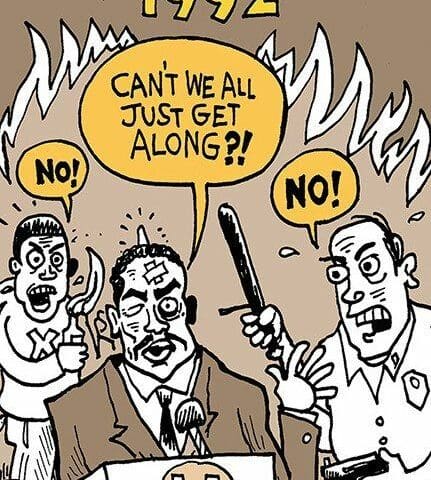

» Read more about: Riot Acts: Lalo Alcaraz on LA's "Progress" »


Hostess is dead. Long live Hostess. A last minute mediation between bankrupt Hostess Brands and the second largest union at the company, the Bakery, Confectionery, Tobacco Workers and Grain Millers International Union (BCTGM) failed to produce results, and liquidation resumed last Wednesday, with a number of potential buyers salivating over the company’s assets and iconic brands.
Hostess’ CEO Gregory Rayburn told presiding bankruptcy judge Robert Drain that he needed to lay off the vast majority — 15,000 — of the company’s 18,500 employees and begin the part and parcel sale of the company immediately for maximum return. Rayburn explicitly blamed a last-minute strike following the BCTGM’s refusal to make harsh concessions as responsible for the company’s demise. In fact, the company’s unions had made concessions totaling $110 million in the last Hostess bankruptcy, which began in 2004. This latest request was a race to the bottom — peeling back negotiated wages,


Domestic workers, such as caregivers and nannies, make all forms of other work possible and play an increasingly significant role in the U.S. economy. However, a new national study found, on average, domestic workers earn little more than minimum wage and few receive benefits like Social Security, health insurance or paid sick days.
Conducted by the National Domestic Workers Alliance (NDWA) and the Center for Urban Economic Development at the University of Illinois at Chicago, the study offers a startling and provocative look into the often-invisible world of domestic workers. Based on interviews with 2,086 workers across the country, researchers found domestic workers face serious financial hardships and have little control over their working conditions.
As a critical part of the U.S. labor force, domestic workers help thousands of working families by enabling them to focus on their jobs. Yet, they are often paid well below the level needed to adequately support their own family.
» Read more about: Study: Domestic Workers' Treatment Is a Disgrace »
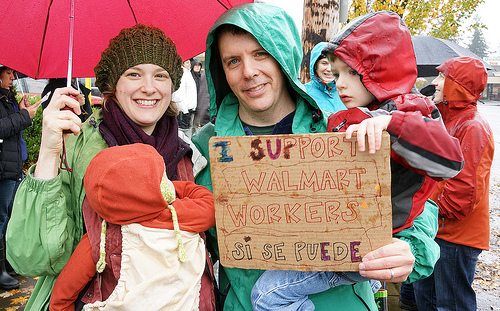

So the day of action at Walmart, the world’s largest retailer, has passed at least for the time being. And it turned out to be much larger than the company’s executives in Bentonville had predicted or care to admit.
Thousands of Walmart workers and their allies protested for better wages, affordable healthcare benefits, full-time jobs and an end to management retaliation for speaking out in at least 100 cities, including in Dallas and Lancaster, Texas, Miami and Kenosha, Wisconsin, and several other locations not know for their activism. Although the final tally will not be clear for some time, “open-source” actions of some kind took place at Walmart stores in 46 different states across the nation, with major demonstrations in California, Washington, New York and Massachusetts.
Before Black Friday, the company’s management insisted that the “so called protests” involved a handful of associates at a handful of stores, supplemented by non-Walmart employees,
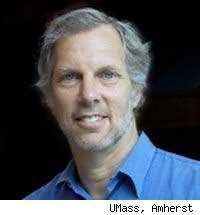

Few American economists want anything to do with social movements. Then there’s Robert Pollin, who has embraced his role as a progressive with a prolific output of books, studies and articles that make the economic case for greater equality.
Pollin, who will be honored at the L.A. Alliance for a New Economy’s (LAANE) City of Justice Awards Dinner next month, rose to prominence in the late 1990s as the most ardent academic defender of living wage laws. In recent years he has advanced the case for a new green economy based on good jobs and environmentally sensible policies.
Pollin, a professor of economics at the University of Massachusetts – Amherst and co-director of the Political Economy Research Institute, may be left of center but he is no business-bashing liberal. To the contrary, he learned from his father – the late Abe Pollin,
» Read more about: Progressive Economist Robert Pollin Gets Down to Business »


Strippers in California were handed a major victory earlier this month by the same judge who ruled “Don’t Ask, Don’t Tell” unconstitutional. The case ruled that dancers were wrongfully classified as independent contractors, and awarded $13 million in back pay and fees to strippers at the massive Spearmint Rhino Chain.
The settlement does away with “house fees” that require dancers to pay a set fee to the club for each shift at California locations, and also requires the chain to reclassify workers [to] employee status within six months. Dancers were previously considered “independent contractors” but subject to strict policies that belied this status.
The Ventura County Star reports on the basis of the lawsuit:
Two women who danced at the Spearmint Rhino in Oxnard launched the suit: Christeen Rivera and Tracy Dawn Trauth. They claimed they were wrongly treated as independent contractors rather than employees entitled to benefits.
» Read more about: Judge: Strippers Are Not Independent Contractors »


“If you’re not a liberal at 20 you have no heart. If you’re not a conservative at 40 you have no brain.” Winston Churchill is believed to have once said that and there are various forms of this sentence that get repeated over and over. Perhaps it’s because deep down a lot of people believe it. Supposedly something happens right around the time progressives turn 30, during which time they take serious account of their lives and question what they believe and why they believe it. In some cases, they “burn out” on activism and decide not to pursue a life in social justice. After all, what’s the point? The world has gone crazy and it’s only getting worse, despite our best efforts…Or so the thinking goes.
I’ve never liked the term “burn out.” “Burn out” implies a fire that goes out and won’t return. After all, anyone who has camped knows how difficult it is to get a fire started again after it’s gone out the first time.
» Read more about: For the Long Run: Hitting the Wall and Getting Over It »


As Black Friday approached, I couldn’t help but remember a vivid scene in The Poisonwood Bible by Barbara Kingsolver where an entire Congo village is overrun by a swarm of ants, creating a human stampede, a living wall of death. The only thing that saves one of the missionary’s daughters are two words of advice that would serve any Walmart shopper well – “elbows out.”
This year, Walmart’s Black Friday customers had to contend with a new challenge: striking workers and their community supporters, who staged actions at stores across the country. Judging by the breadth and intensity of the protests, Walmart diehards had better get used to facing picket lines, and not just on the busiest shopping day of the year.
The origins of the “Black Friday” label are contentious, with commercial interests arguing that it lies in the accounting term of being profitable,